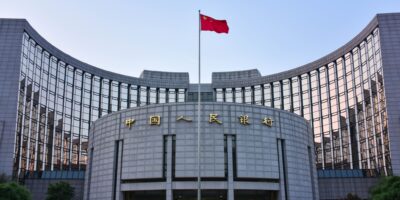Can Medical Supply Autarky Save Us from Pandemics?

It’s been a tumultuous few years—to say nothing of the past three months—for free traders. We know the story by now: Ever since the election of Donald Trump, a coterie of influential political figures has pushed back against liberal internationalism. Complemented by a formidable intellectual vanguard, these individuals have been leading the charge against free international trade. Claims that free trade hollows out domestic manufacturing and guts local communities have contributed to growing skepticism among the electorate concerning the value of unimpeded exchange across political borders. This is doubly so regarding trade with China, and the skepticism has morphed into outright hostility as the coronavirus pandemic grows.
William Upton, writing at The American Mind, provides a striking and eloquent example. Upton enthusiastically defends autarky, “an economic and industrial policy of self-reliance wherein a nation need not rely on international trade for its economic survival.” While not opposed to all international trade, Upton insists on the need for America to become self-reliant, especially with regards to crucial medical infrastructure and supply chains. The alternative—depending on China for needed pharmaceuticals and other medical equipment—poses unacceptable risks. The unconscionable behavior of the Chinese Communist Party in covering up the severity of the coronavirus demonstrates this clearly. “Besides the threat of global supply chain shutdowns because of disease outbreaks like coronavirus, there is the grave concern that the equipment and products we are purchasing from overseas could be used against us in both peacetime and times of war,” Upton warns.
The speed with which autarky became attractive caught economists flat-footed, myself included. The proposition that free international trade is crucial to the wealth of nations has long been embraced by the overwhelming majority of economists. Economists have nevertheless rallied. Writing for the American Institute for Economic Research, Max Gulker pushes back against medical supply nationalism. (Full disclosure: I am a Senior Fellow at the Sound Money Project, which is a part of AIER.) He is particularly concerned that moves towards autarky will require less efficient production methods, which threatens to make these goods artificially scarce. “When there is a shortage of medical supplies, going out of our way to make them more expensive will hurt people. These are also not perishable goods – stockpiling them from efficient sources to be deployed in a future crisis seems like a safer bet than shiny new idle factories waiting to ramp up production when the next virus hits,” Gulker explains.
While the coronavirus pandemic is a unique situation, the contention underlying it does not appear to be anything new. It looks like we are rehashing the old-time argument between economic liberals and economic nationalists. Or are we? When we break down these arguments, we notice a recurring pattern. Economic liberals rely on the impeccable logic of comparative advantage: specialization and the division of labor, even across political boundaries, markedly increase our wealth. Economic nationalists respond that an uncritical extension of the division of labor into rival, and potentially hostile, nations undermines national interests. While some economic nationalists continue to fall into the crude fallacies of trade deficit fundamentalism, this is a very different argument than the one put forth by advocates of medical supply autarky.
Perhaps this is why economists have not had much success in convincing the public that medical supply autarky is undesirable. You cannot counter broadly political objections with narrowly economic arguments. Wilhem Röpke, an influential German economist from the early days of the Cold War, understood this well.
Röpke’s position deserves close scrutiny because he has impeccable liberal economic credentials: although a cultural conservative, Röpke greatly appreciated the free market, as is obvious from his magnum opus, A Humane Economy. Röpke’s economic liberalism included a vociferous defense of a liberal international economic order. But when the issue is trade between free states and Communist states, the issue is no longer one of economics alone. Whereas in free states the government is, at most, a referee for economic affairs, in Communist states the government and the economy are really one pernicious political entity. “It follows that each and every economic transaction with the Communist empire is an act of international politics, for the simple reason that the other party regards it as such,” Röpke warns.
“For monolithic Communism, trade with the West is primarily a political act: for the pluralistic West, it is primarily an opportunity for business and profit.” This asymmetry places free states in considerable danger. Although the Chinese Communist Party has permitted significant economic liberalization in recent decades, we would be foolish to ignore the fact that they are still authoritarian despots, uniquely positioned to exercise political control of economic matters in the service of hegemonic ends. Röpke’s position, generalized to the current confrontation with China, is simple: liberal internationalism is not a suicide pact. If the Chinese government can restrict the supply of life-saving medical goods during a pandemic, the autonomy of the United States, and hence an important element of its freedom, is in danger.
Economists, especially classically liberal economists like myself, must address these arguments head-on. For my part, I think we already have the tools to mount a successful counter-argument. Michael Munger, a Duke University political scientist, has usefully come up with the “unicorn test” for public policy. When proposing expansions of government power, as would be necessary to create medical supply autarky, we must recognize the powers in question will not be wielded by philosopher-kings. They will be wielded by actually existing politicians and bureaucrats, with all their biases and imperfections. Munger proposes a three-step process that serves as a kind of triage for new government powers:
- Go ahead, make your argument for what you want the State to do, and what you want the State to be in charge of.
- Then, go back and look at your statement. Everywhere you said “the State,” delete that phrase and replace it with “politicians I actually know, running in electoral systems with voters and interest groups that actually exist.”
- If you still believe your statement, then we have something to talk about.
This is the hurdle that medical supply autarky has to clear. And it is a steep one. Is it an insurmountable one? I don’t think so. Public choice economics is not an automatic “I win” button. Nevertheless, it should seriously temper the excitement of even the most enthusiastic proponent of autarky. Ironically, because a major stumbling block is special interests’ attempts to pervert any plan for medical supply autarky, the kind of government we could most trust to implement such a plan would be one that normally refrained from interfering in markets—in other words, one that was already broadly libertarian. Alas, we do not live in this world. We live in one where Donald Trump can get elected president. And if medical supply autarky is to have a fighting chance, arguments for its enactment cannot ignore political realities. Thus far, economic nationalists are just as guilty as economic liberals of ignoring inconvenient political constraints.










